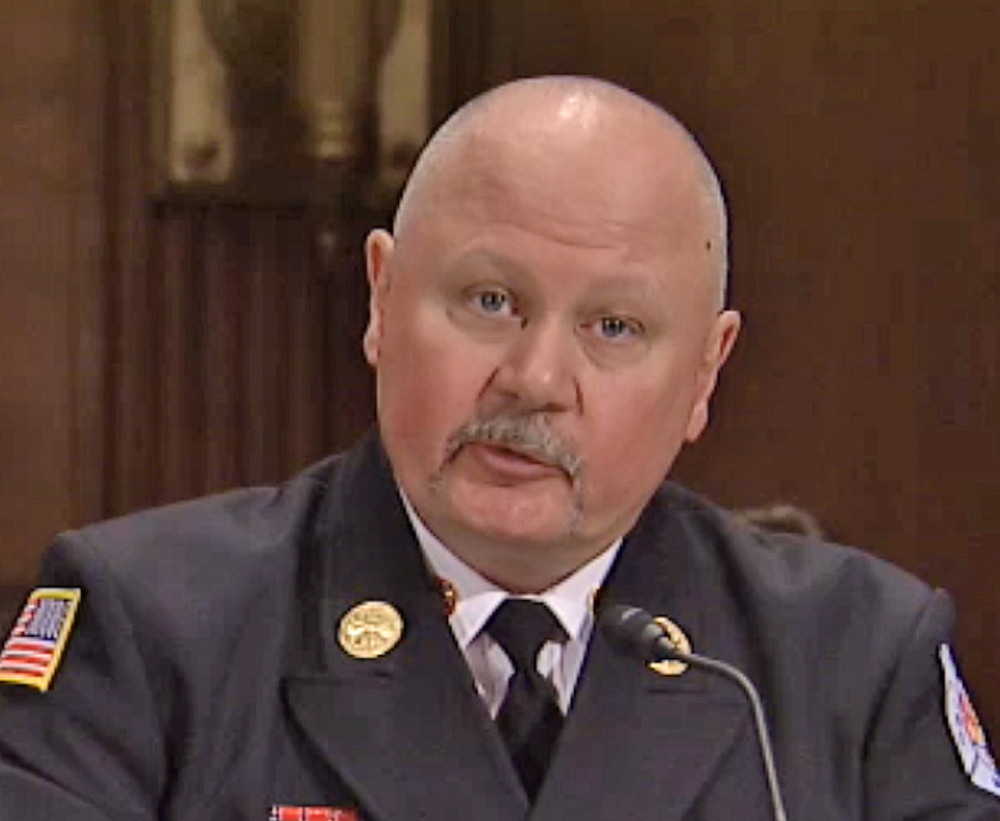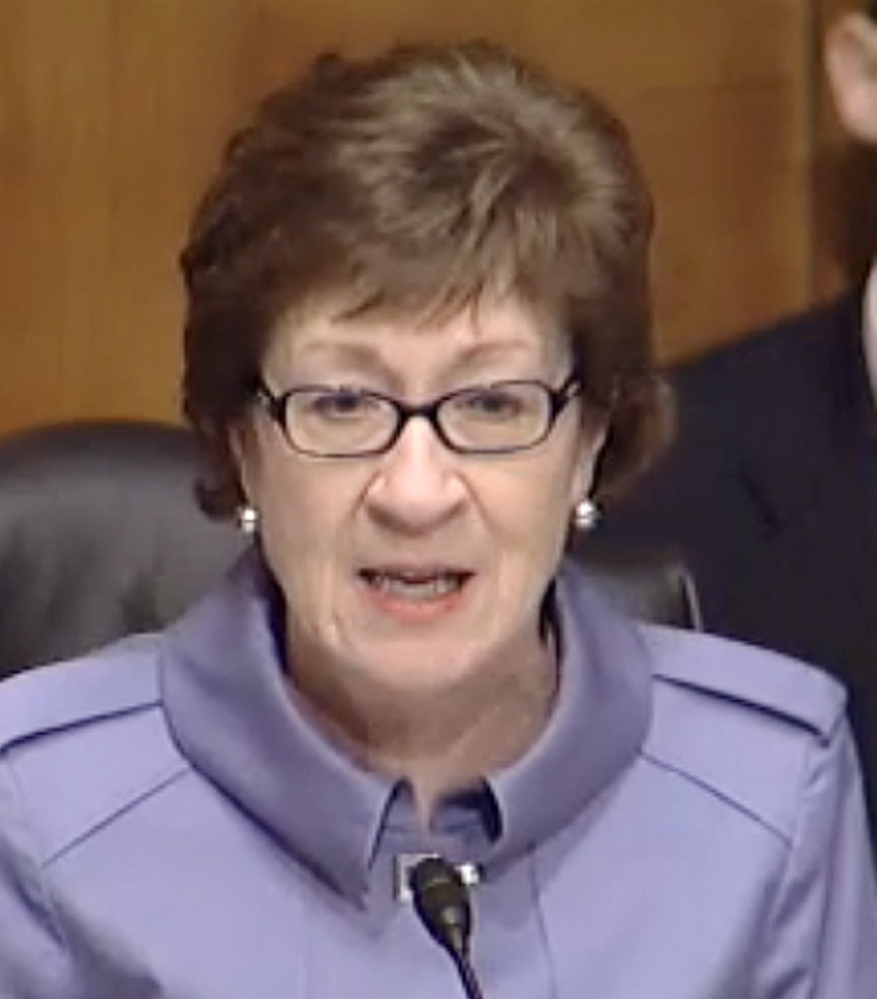Rangeley’s fire chief told a congressional subcommittee Wednesday that crews were woefully unprepared when arriving at last summer’s Lac-Megantic train derailment and explosion, and more training is crucial.
Fire Chief Tim Pellerin recommended online-based hazard training for rural fire departments, saying it can be difficult for volunteers to travel to training sessions around their work schedules and have time sacrifice either vacation time or pay.
Pellerin, appearing in full dress uniform before the Senate subcommittee, said the firefighters from both Franklin County and Quebec had to think on their feet last July because there had been no plan for responding to a train explosion involving crude oil. Committee members praised the response efforts, despite the lack of training for such a disaster that Pellerin and others had received.
“I think the biggest part is, we are prepared for the residential, common everyday emergencies. We’re not prepared for a fire like this,” Pellerin said in testimony that was available for viewing online.
Pellerin went to Washington, D.C., to testify at the request of Sen. Susan Collins, R-Maine, who is supporting increased rail-hazard training for emergency responders. Collins is the ranking member of the Senate Transportation Appropriations Subcommittee, which is working on a federal funding bill for fiscal year 2015.
The Rangeley Fire Department was one of eight Franklin County departments that went to the Quebec town’s aid July 6, when a Montreal, Maine & Atlantic Railway train with faulty brakes and pulling 72 oil-laden tank cars rolled driverless down an incline into Lac-Megantic while the train conductor was on a sleep break. The tank cars derailed in the downtown area, spilling about 1.5 million gallons of crude oil and causing an explosion and fire that destroyed 40 buildings.
Pellerin said firefighters decided their priorities would be to get water to the burning buildings and to extinguish flames at rail cars that were heating up and in danger of exploding. Meanwhile, “oil ran down the street like hot lava” and responders had no instruction from the rail company about how to deal with the hazardous material.
Other policy leaders testified at Wednesday’s hearing that crude oil transportation by rail is increasing and has grown 400 percent since 2005, which increases the need to prepare for rail safety hazards. There was no testimony from anyone representing the railroad industry.
Barb Graff, director of the Office of Emergency Management in Seattle, said the railroad companies and fire departments need to communicate more to know how to respond to such disasters before one strikes. She said the railroads have a responsibility to help the fire departments train as they increase the frequency with which they transport hazardous material through communities.
“There’s an imbalance when we increase the hazard but we don’t increase the ability of the local community to respond to the hazard,” Graff said.
The railroad companies are partly to blame for the chaos at the accident scene, Pellerin said. He said railroad representatives “came and took a few photos” before leaving the emergency crews to figure out how to put out the flames.
“They need to be held responsible for this,” Pellerin said.
Fire crews decided to truck in 8,000 gallons of foam from Toronto, Pellerin and Collins said.
Collins said that “it was also very troubling to me that you did not get help from the railroads.”
She said more than 99 percent of trains reach their destination without losing any of the material being transported, but the high rate is “little comfort” to those directly affected by accidents like the one in Lac-Megantic.
She said the problem requires a multi-faceted solution from fixing railroad tracks, strengthening tank cars and equipping emergency responders properly.
“A disaster is one of the worst times to be trying to exchange business cards and figure out who does what,” she said.
Collins told Pellerin that his testimony was important because it gave a first-person account of situations they were considering policy to regulate.
“It’s so important for us, if we’re going to shape the budget correctly, (to) make the right policy decisions, to hear from those of you who are truly on the front lines,” she said.
Kaitlin Schroeder — 861-9252 kschroeder@centralmaine.com
Send questions/comments to the editors.




Success. Please wait for the page to reload. If the page does not reload within 5 seconds, please refresh the page.
Enter your email and password to access comments.
Hi, to comment on stories you must . This profile is in addition to your subscription and website login.
Already have a commenting profile? .
Invalid username/password.
Please check your email to confirm and complete your registration.
Only subscribers are eligible to post comments. Please subscribe or login first for digital access. Here’s why.
Use the form below to reset your password. When you've submitted your account email, we will send an email with a reset code.